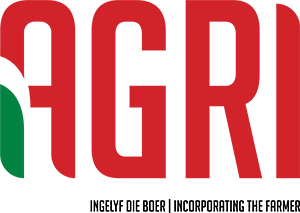OBP addresses animal vaccine shortages

Faced with several challenges, such as political interference, a shortage of expertise, a lack of infrastructure, and old technology, Onderstepoort Biological Products SOC Ltd (OBP) has been unable to meet the high demand for animal vaccines nationwide. Thanks to support by the European Union, however, hope prevails.
With a mission to safeguard food security, human health, and livelihoods, OBP, a state-owned company, is often considered the superhero of South African animal vaccine manufacturing. Their goal is the development of innovative products and efficient manufacturing processes that ensure affordable and accessible vaccines for all. OBP’s reach extends through diverse distribution channels, spreading its protective shield far and wide. With a dedication to preventing and controlling animal diseases, the company stands tall as a defender of the animal kingdom and a champion of our well-being.
And until recently, OBP was making promising strides. Their mandate to prevent and control animal diseases that affect food security, human health, and livelihoods held great potential. However, there has been a noticeable decline in their progress. The once-innovative development of products and efficient manufacturing processes seems to have slowed down. This disappointing turn of events has led to a lack of affordability and accessibility of vaccines, posing a problem for many animal owners, particularly farmers.
OBP has encountered a series of formidable obstacles in recent times, ranging from political interference, a shortage of expertise, outdated technologies being overshadowed by newer and more cost-effective alternatives offered by external entities, and a deteriorating infrastructure resulting from neglect and insufficient maintenance has all plagued OBP.
The consequences
Consequently, farmers are locked in a perpetual battle to acquire timely vaccines for diseases like Bluetongue and African Horse Sickness. Delays in the production process have impeded their access to these vital preventive measures, leaving them grappling with the consequences. A concerning report published by the Daily Maverick in May revealed that a livestock consultant in KwaZulu-Natal shared distressing news that a staggering 203 horses had already succumbed to African Horse Sickness (AHS) in the province alone. This alarming loss of equine lives highlights the urgent need for effective measures to combat this devastating disease
OBP’s distribution channels, once varied and effective, now appear to be losing their reach. Witnessing such a vital defender against animal diseases falter on its mission is disheartening. Hopes for OBP to be a stalwart guardian have been met with disappointment and concern. Across the nation, farmers are voicing their grievances over the devastating loss of sheep and cattle herds. The absence of Bluetongue and African Horse Sickness vaccines has left them defenceless against these diseases. Faced with such dire circumstances, some farmers have even contemplated resorting to illegal means to acquire vaccines, desperate to safeguard their valuable herds. The situation paints a bleak picture of the challenges farmers are grappling with in their battle to protect their livestock.
The scarcity of vaccines can have far-reaching consequences, including significant threats to both food security and the export of livestock to international markets. In the event of widespread herd losses due to insufficient vaccinations, the nationwide demand for meat may be threatened. Moreover, failing to adequately vaccinate livestock herds can jeopardize the country’s standing in international markets, as importers may hesitate to accept products from a nation that has struggled to protect its livestock. The Foot and Mouth disease outbreak seen last year further reinforces the critical importance of ensuring adequate vaccine availability to maintain both domestic food security and international trade relationships, as the outbreak severely impacted the trading of livestock and meat products.
EU assists in addressing challenges by August
On the bright side, however, a sense of hope and progress filled the air as we reflected on the recent updates from Onderstepoort Biological Products (OBP). During a media briefing held at their offices in late May, OBP shared the heartening news that animal vaccine shortages have reached a point of stability in the country. While some vaccines still face shortages due to low demand, OBP assures us that these challenges will be completely resolved by August.
OBP has embarked on a remarkable endeavour by engaging international European Union (EU) experts to accelerate this process and ensure a seamless production flow. These skilled professionals are being recruited to lend their expertise in fixing the broken-down equipment within the vaccine manufacturing facilities. This collaborative effort highlights the spirit of cooperation and instils a renewed sense of optimism for a swift resolution.
The organisation acknowledges that the availability of vaccines depends on the demand for each specific product. With this in mind, they have diligently implemented corrective measures to optimize production and distribution. Furthermore, OBP has extended a warm invitation to international experts from the EU, emphasizing their commitment to overcoming any remaining supply challenges.
As we look ahead, we can anticipate further positive developments in June. Experts are scheduled to inspect the equipment failures at OBP, paving the way for comprehensive repairs and ensuring a more robust manufacturing process. OBP’s collective efforts and strategic actions ignite hope for an improved vaccine supply chain. The steadfast commitment of OBP, alongside the support of international experts, reinforces the belief that a brighter future awaits, where animal vaccines are readily available to safeguard the health and well-being of our beloved animals.
– By Aisha Dhaler












